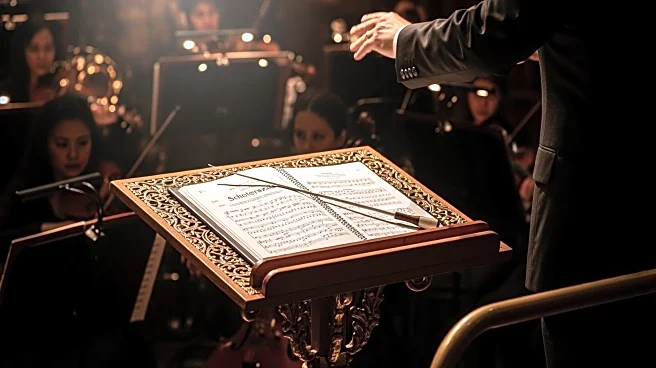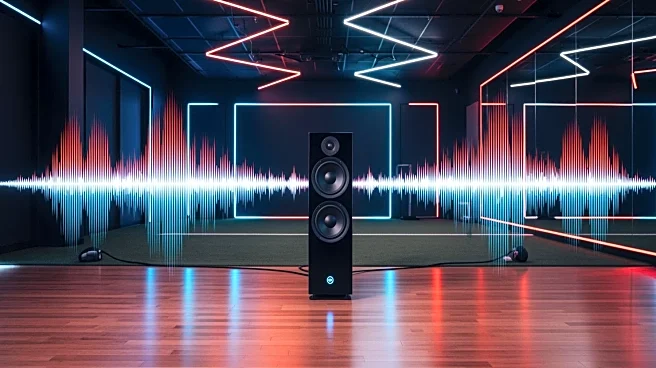What's Happening?
Alexander Shelley, the artistic and music director designate for the Pacific Symphony, is set to conduct a series of performances featuring Nikolai Rimsky-Korsakov's 'Scheherazade' at the Renée and Henry Segerstrom Concert Hall. Shelley, who is succeeding
Carl St.Clair, emphasizes the role of a conductor as a servant to the music, interpreting the works of composers for the audience. The performances, scheduled from Thursday to Saturday, will also include contemporary pieces such as Jessie Montgomery's 'Starburst' and Arturo Márquez's guitar concerto 'Mystical and Profane.' Shelley, who has been the music director of Canada's National Arts Centre Orchestra, views the orchestra as a microcosm of society, where individual excellence contributes to the collective performance.
Why It's Important?
Shelley's approach to conducting highlights the importance of collaboration and communication within an orchestra, reflecting broader societal values. His leadership in the Pacific Symphony marks a significant transition, potentially influencing the orchestra's future direction and repertoire. The inclusion of contemporary works alongside classical pieces may attract diverse audiences and promote cultural exchange. Shelley's emphasis on the conductor's role as a conduit between the composer and the audience underscores the evolving nature of orchestral performances, where interpretation and presentation are key to engaging listeners.
What's Next?
As Shelley takes on his new role, the Pacific Symphony may experience changes in programming and artistic direction. His focus on both classical and contemporary music could lead to innovative performances that appeal to a wider audience. The upcoming performances serve as a preview of Shelley's vision for the orchestra, potentially setting the stage for future collaborations and commissions. Stakeholders, including musicians and patrons, may anticipate further developments in the orchestra's artistic journey under Shelley's leadership.
Beyond the Headlines
Shelley's perspective on orchestral music as a reflection of societal ideals highlights the ethical and cultural dimensions of his work. By fostering individual responsibility and collective harmony, his approach may inspire discussions on the role of the arts in promoting social cohesion. The performances could also spark interest in the cultural narratives embedded in the music, encouraging audiences to explore the stories and themes conveyed through orchestral compositions.

















